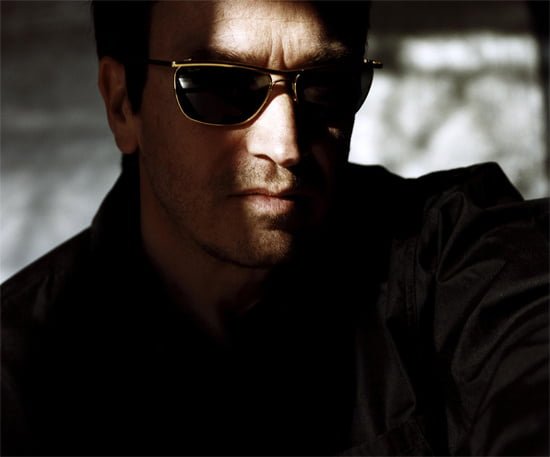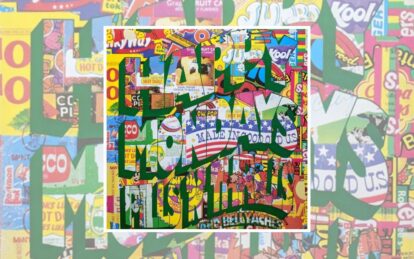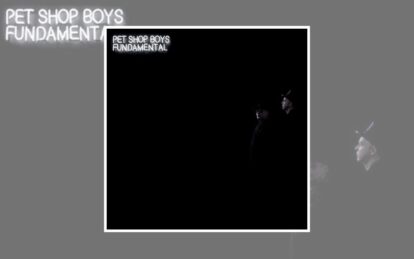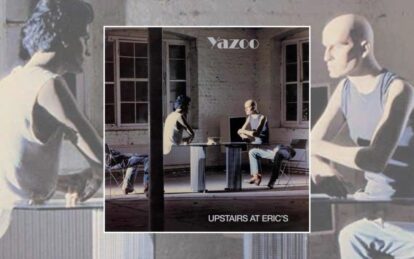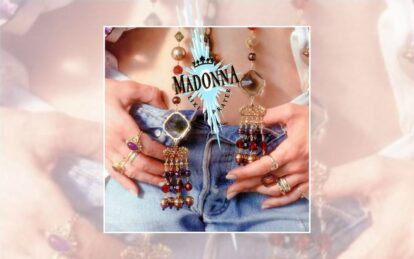Following up the enormous success of Violator almost broke Depeche Mode. But despite Dave Gahan’s heroin addiction and inter-band fighting, with Songs Of Faith And Devotion they eventually created a dark masterpiece…
“I struggled and struggled and struggled and struggled with it… it was like pulling teeth.” So said producer Flood of the arduous sessions that eventually churned out Songs Of Faith And Devotion, Depeche Mode’s eighth studio album.
While most groups have their off days, this particular venture was clearly a trial of biblical proportions – and one that would see tempers fray, time wasted and one core member up sticks for good.
At the close of the World Violation Tour in support of their last album, Violator, Depeche Mode were a band at the height of their powers. A triumphant cavalcade of 11 articulated lorries and 100 stage crew had helped them reach the ears of well over a million fans in various stadiums around the globe.
The album won triple platinum status and cemented the group as major-league stars. Understandably, the four human beings at the centre of the maelstrom had been run ragged by the whole affair.
Almost two years later, when Martin Gore, Dave Gahan, Alan Wilder and Andy Fletcher reconvened in a London bar shortly before they were due to kick-start the whole process all over again, circumstances had changed considerably. For one, they faced a wall of intimidating proportions with the need to follow up – or even equal – the success of Violator.
Not only had the musical climate shifted considerably with the scuzzy guitars of grunge cranked up in their absence but, far more importantly, here stood four altered souls who’d barely crossed paths since emerging from the tour bus.
Read more: Making Depeche Mode’s Speak & Spell
Read more: Top 40 Depeche Mode songs
 The Songs
The Songs
1 I Feel You
A clear statement of intent, first single and album opener I Feel You initiated a new chapter for the band. From the ear-piercing synth that introduces the whole shebang to the grinding, ever-present blues-rock riff around which the track circles, this exhibited the new performance-weighted manifesto. Alan Wilder’s live drums were sampled, channelled through synthesizers and finally aligned into sequenced loops to exhilarating effect.
“The main reason for the choice was that the track had attitude and was radically different to what we had done before,” stated Alan Wilder. “We hoped it would surprise people and make them curious about the rest of the album.” And so it did. The song reached No.8 in the UK and was the group’s highest-charting single worldwide. It’s clear the Depeche Mode of old had left the room.
2 Walking In My Shoes
With human frailty and judgement as its principal themes, this brooding second single is widely considered one of Martin Gore’s finest creations. “It was constructed using an unusual method for us, i.e. jamming together,” explained Wilder. “Martin played the guitar, I played bass and we ran a rhythm machine – this was just to get the basic feel for the track – and after much trial and error, the chorus bassline and guitar pattern fell into place.”
Flood and Wilder then constructed the main riff, before adding loops, string arrangements and various studio trickery. The single made No.14 in the UK.
3 Condemnation
A sermon of bitter acceptance preached over a solemn gospel march, Condemnation embodies the shadowy appeal of the album as a whole. Both Martin Gore – in terms of his mastery of songwriting – and Dave Gahan – in terms of delivering an utterly compelling vocal – are at their absolute pinnacle.
Condemnation takes on a hymnal quality thanks to its super-slow tempo and an ever-present chain-gang hum, both of which add to its unique processional quality. “The idea of that track was to enhance the gospel feel that the song originally had without going into pastiche, and to try to create the effect of it being played in a room, in a space,” said Wilder to Keyboard Magazine.
They achieved the effect by recording each band member separately, but in the same space, with organ, drums, clapping and percussion.
4 Mercy In You
One more in the name of salvation, Mercy In You is a classic mix of the dark and light shades from the Depeche palette. Martin Gore’s slurred slide guitar line interrupted by Wilder’s clanking “rap-like drum loop”, the ethereal soft synths that momentarily reframe the lyrics and Dave Gahan’s pleading cry, mesh to form a vast, many-splendoured production.
It also indulged Wilder’s penchant for backwards sounds, with a reversed piano. “Having taken psychedelic drugs in my youth, it reminds me of listening to music in that state of mind; everything sounds backwards,” he told Keyboard in 1993. “So when I hear something backwards, it takes me off into a sort of trippy mood.”
5 Judas
Plenty going on here, from the reverse reverb-caked uilleann pipes that introduce the song to the lyrical themes of atonement and sacrifice, this time beautifully delivered by Martin Gore. The band attempted several different versions, from a reggae-esque take to a blues-country version. The closing crowd vocals were created thanks to a cast of tape ops, secretaries and kitchen staff from the studio.
Their combined voices were multitracked to create an ensemble of over 90 voices and the makeshift studio choir was then processed to sound as if recorded in a church. Choir or no choir, the fighting continued and Flood remembered the track for all the wrong reasons. “Judas was the last track we mixed and I can always remember – it was like the last day of mixing the whole album – and Alan and Martin are sitting on the couch arguing about it.”
6 In Your Room
One of Alan Wilder’s all-time favourite Depeche Mode tracks, In Your Room was the fourth and final single to be extracted from the album. While the song took several attempts stylistically in the studio, the end product remains one of the band’s greatest moments.
Dave Gahan’s deep baritone works its magic atop a cyclical, chiming electric guitar before yet more doom-laden loops come crashing in to remind us that this is Songs Of Faith And Devotion we’re listening to. A variphone synth riff brings the track home with exquisite perfection.
Nirvana producer Butch Vig’s reworked Zephyr Mix was released as a single and it reached No.8 in the UK charts.
7 Get Right With Me
Resplendent with distorted vinyl scratching, pounding loop and resonant guitars, this is one of the more uplifting tracks on the album. On this, the shortest song,
Gahan is joined in his message of unification by a trio of gospel singers – Bazil Meade, Hildia Campbell and Samantha Smith – and collectively they carry us up into a pleasingly jubilant climax.
8 Rush
An ever-present arpeggiated synth loop that winds in on itself, a protagonist haunted by guilt and lies, drug references and the occasional intense, unearthly sample meant many an album critic clocked the Nine Inch Nails motifs when describing the noisy, propellant nature of Rush – and we’d agree; Flood had, after all, worked with Trent Reznor on Pretty Hate Machine a few years prior.
9 One Caress
Unlike the laborious nature of many of the tracks on Songs Of Faith And Devotion, the only ballad in the set was the second-fastest recording of any Depeche track, ever. During the final sessions in London’s Olympic Studios, Martin Gore took on lead vocal duties, delivering his quivering tenor live atop a sweeping 28-piece string section arranged by Wil Malone.
Malone was chosen thanks to his sublime work on Massive Attack’s Unfinished Sympathy, a favourite of both Wilder and Gore. “That was maybe 10 minutes of studio work in a whole year,” remembered Gahan, “but it was a very special moment.” The track was released as a US-promo single.
10 Higher Love
Described humorously by Fletcher as “our Tears For Fears moment”, and one of the most synth-happy tracks on the album, Higher Love closed out the LP immersed in an epic euphoria.
Commencing with the band’s familiar deep, soft synths, and with a sequenced Moog bassline that steadied the ship, this curtain call is further augmented by ambrosial floating samples – a requisite haunting vocal that mirrors the distorted harpsichord/piano line brings it all together, as Gahan is “Heaven-bound on the wings of love…”
Frontman Dave Gahan, in particular, was unrecognisable: super-skinny, goatee-bearded with hair down to his shoulders, heavily tattooed and recast as the ready-made rock god. Having split from his wife, he’d relocated to LA and immersed himself in everything La La Land had to offer.
“Violator was huge around the world and I should have been on top of the world,” he explained to Melody Maker. “I had everything I could possibly want, but I was really lost. I didn’t even feel like I knew myself anymore. And I felt like shit, ‘cause I constantly cheated on my wife, and went back home and lied. My soul needed cleansing.”
He’d started a new relationship with the band’s American PR Teresa Conroy, who brought with her a hip new cast of intimates that included the likes of art-rockers Jane’s Addiction. From his mansion in the Hollywood Hills, and with his newly-acquired Harley-Davidson propped up outside, Gahan cooked up an entirely new vision for the band. Not only that, but with idle hands came a drug habit that quickly got out of hand.
“I’d changed,” he admitted, “but I didn’t really understand it until I came face to face with Al and Mart and Fletch. The looks on their faces battered me.”
For Flood, Alan was ‘the craftsman’, Martin, ‘the ideas man’, and Dave, ‘the attitude’. In the midst of the whirlwind, Gahan had taken his role to the extreme. “I consciously thought, there’s no fucking rock stars out there any more,” he told NME.
“No-one was willing to go the whole way to do this. So I created a monster… and I dragged my body through the mud to show that I could do it.” While hidden from sight at first, Gahan’s heroin habit would plague the recording of Songs Of Faith And Devotion.
Read our article on the cover art of Depeche Mode
In stark contrast, Martin had moved to the leafy peripheries of Hertfordshire and had a daughter, Wilder had settled in the Sussex countryside and was busy experimenting with his side-project Recoil and – equally un-rock’n’roll – Andy Fletcher had opened a restaurant in St. John’s Wood. It was soon clear to the others that Dave was hellbent on deserting the synth-heavy sound that had defined the band.
“I went back with this attitude that we’ve got to make a rock record,” he remembered. “I was all gung-ho… and the rest of the guys were not part of my plan.” Nonetheless, both Gore and Wilder at least had reinvention in mind. “We wanted to try to change as many things about our approach to making music as we possibly could,” Wilder explained to Keyboard magazine, “mainly to keep ourselves interested in what we’re doing and to challenge ourselves.”
When Gore’s initial demos reached the rest of the band in early 1992, the bluesy motif of I Feel You, the dark ruminations of Walking In My Shoes and gospel centrepiece Condemnation immediately connected with Gahan. “The lyrics were completely appropriate to the way I was feeling,” he explained. “It was almost like Mart was writing the stuff for me.”
The Videos
I Feel You
Directed by Anton Corbijn, the man behind the concepts for both the World Violation and Devotional world tours, this simplistic black and white video cemented the band’s new image. Shots of the members cloaked in blackness are interrupted when Dave Gahan’s outstretched arms introduce the curtain-drop into each new landscape: Martin Gore stomps around some mountainous expanse, the two perform in front of an abandoned church and actress Lysette Anthony coquettishly eyes up the camera, playing the part of the enigmatic lover.
Walking In My Shoes
For the record’s second satellite, Corbijn chose to lean heavily on the religious imagery of the album. With a palette of black and white, purple, red, emerald green and flaming orange, there’s starkly lit shots of band members cowering in a shadowy corner, interspersed with various ambiguous characters, from shamanic bird-headed men and medieval serfs to a priest-like figure and a nun. A mountain backdrop is revealed, its winding path suggesting an uphill route to salvation. The video was censored for US MTV, although the uncut version is available on several DVDs.
Condemnation
Yet more dubious theological symbolism was adopted for the album’s processional third single. A maiden in a virginal white gown stares down the lens, before Dave Gahan – in a bright brilliant white vest – mouths the lyrics from amidst a solemn marching group of hooded figures, seemingly leading him to some kind of willing surrender. Various laughing, flirting and kissing couples stare on as this funereal cortege passes by, eventually guiding their passenger to the white-gowned girl, before the two are chained together in a lustful embrace.
In Your Room
For the album’s final single, and unsure if this would be his last with the group, Anton Corbijn chose to survey his own portfolio with the band over the years, via references to imagery from Strangelove, I Feel You, Walking In My Shoes, Halo, Enjoy The Silence, Personal Jesus, Condemnation and Never Let Me Down Again. Scenes of partial nudity and bondage meant the video appeared after hours on US MTV, which led to a lack of sales in America. It is also the last video to feature Alan Wilder, who left the group soon after.
Songs Of Faith And Devotion was a tale of three cities. First Madrid, then Hamburg and finally, after a 10-month slog, the album was wrapped in London. Music For The Masses had been recorded in Paris and Violator was split between Milan and northern Denmark – this time it would begin in Spain.
When a suitable studio proved hard to find, Flood floated the idea to improvise. Having recently completed U2’s The Joshua Tree in a residential house converted into a studio, he figured a similar set-up would be equally revitalising for Depeche Mode.

Violator 2.0 was never on the cards. This time a “looser, less programmed” feel was the ethos, with the dynamics of human performance to the fore. But with little or no pre-production, the reality hit hard.
“When we go in and play together, we end up sounding like a pub rock band,” concluded Wilder. “We’re not capable of going into a room, playing together, and coming up with a magical piece of music. We have to apply all that technology to make it sound more spontaneous and human.”
Nonetheless they persevered, and standout track Walking In My Shoes was borne of one of those laborious Madrid jam sessions: Gore on guitar and Wilder on bass, playing along to a looped rhythm track. Flood and Wilder then constructed further drum loops and string arrangements, as well as the central riff, a combination of piano and harpsichord through a distorted guitar amp.
The villa’s basement – with its garish salmon and black marble decor – became the drum room.
Read our article on Depeche Mode’s Violator
Read our definitive guide to Depeche Mode
One of the first songs started in Madrid evolved into one of the finest, and for once Gahan was coaxed out of his stupor.
“The only thing that I felt I really did on that record was do what I considered was probably my all-time greatest vocal on Condemnation,” he said. “Most of the rest of the time I would sporadically come in and out of the studio and blurt out some ideas and then go back and lock myself in my room. It was probably really hard for the rest of the guys.”
Despite his condition, he pushed himself, singing in higher keys.
“I worked personally with Dave for many years to get the optimum performance out of him and I actually believe that some of his best vocals are on the Songs Of Faith And Devotion album,” Wilder explained to Recoil’s website. “Dave’s voice on tracks such as In Your Room, Condemnation, I Feel You and Walking In My Shoes absolutely mirrors the intensity of the music.”
Still, with barely anything in the can, the session had been a disaster. The claustrophobia of living in each other’s pockets, endless tinkering with no success, unspoken tensions, and a singer who was – unbeknownst to the others – doing heroin in-between takes, meant things moved at a glacial pace.
“I remember being in there with Flood and I swear he was in tears because he was at such a loss at what to do to pull this thing together,” remembered Gahan. “It was like we’d had a run of great luck and then on Songs… all of the luck had evaporated,” added Flood. “Everyone had camped into their little area and they were sticking to their guns.”
With progress at an all-time low, Mute boss Daniel Miller discovered a studio almost completely devoid of activity.
“I turned up after a couple of weeks, but the vibe was terrible,” Miller conveyed to Electronic Beats. “You had Martin and Fletch taking up their normal pose on the sofa reading the tabloids; Alan was in another room practising drums; one of the engineers had his feet up on the desk asleep; Dave was up in his room, all the curtains drawn, painting. Flood was trying to get some kind of sound. It was a horrible, poisonous atmosphere.”
When the band relocated to Hamburg’s Chateau Du Pape studios, a more familiar working environment meant the success rate immediately increased: eight tracks were completed in six weeks, compared to the slim pickings mined from Madrid. Hamburg was also the place in which the band finally discovered Gahan’s various drug paraphernalia, but that was a battle for another time. “Even though he was on heroin and wasn’t here most of the time,” remembered Gore, “whenever he went into the studio and did a vocal, it was amazing.”
As the album finally came together in London, Flood and Wilder adopted sequencers to restructure the live takes, while Gore’s guitars remained a vital focus. “We’re applying the technology to a performance to make sure that you get all the dynamics of a human performance, all those slight timing changes that make something feel human,” outlined Wilder.
Another new tack was the inclusion of outsiders for the first time. Irish multi-instrumentalist Steafan Hannigan’s uilleann pipes transformed the intro to Judas, and gospel singers augmented the jubilant Get Right With Me. Gore sang live with a 28-piece string section on One Caress – recorded in less than an hour. For Gahan, Songs… would be “the opposite to what anyone was expecting from Depeche Mode.”
Against all odds, the album was finally released at the end of March 1993. It had cost a small fortune, but out of the mire came a work of towering strength that would endow the band with a powerful new aura and trump its predecessor to score the cherished No.1 spot in both the UK and America.
“In the face of adversity you often produce your best work,” surmised Wilder. “In a way, it’s an exact tribute to the emotions of the time and the chemistry between the people,” added Flood.
For Gahan they’d “finally managed to marry the electronics and Depeche Mode qualities that have always been there with performance and musicianship.” But “something broke” in Wilder during the making of Songs Of Faith And Devotion, and the ensuing 180-date Devotional tour – cited as the most debauched tour in history – would prove the last straw, but that’s one for another day…
Read more: Scritti Politti’s Green Gartside interview
Check out Depeche Mode’s website here
Classic Pop may earn commission from the links on this page, but we only feature products we think you will enjoy.

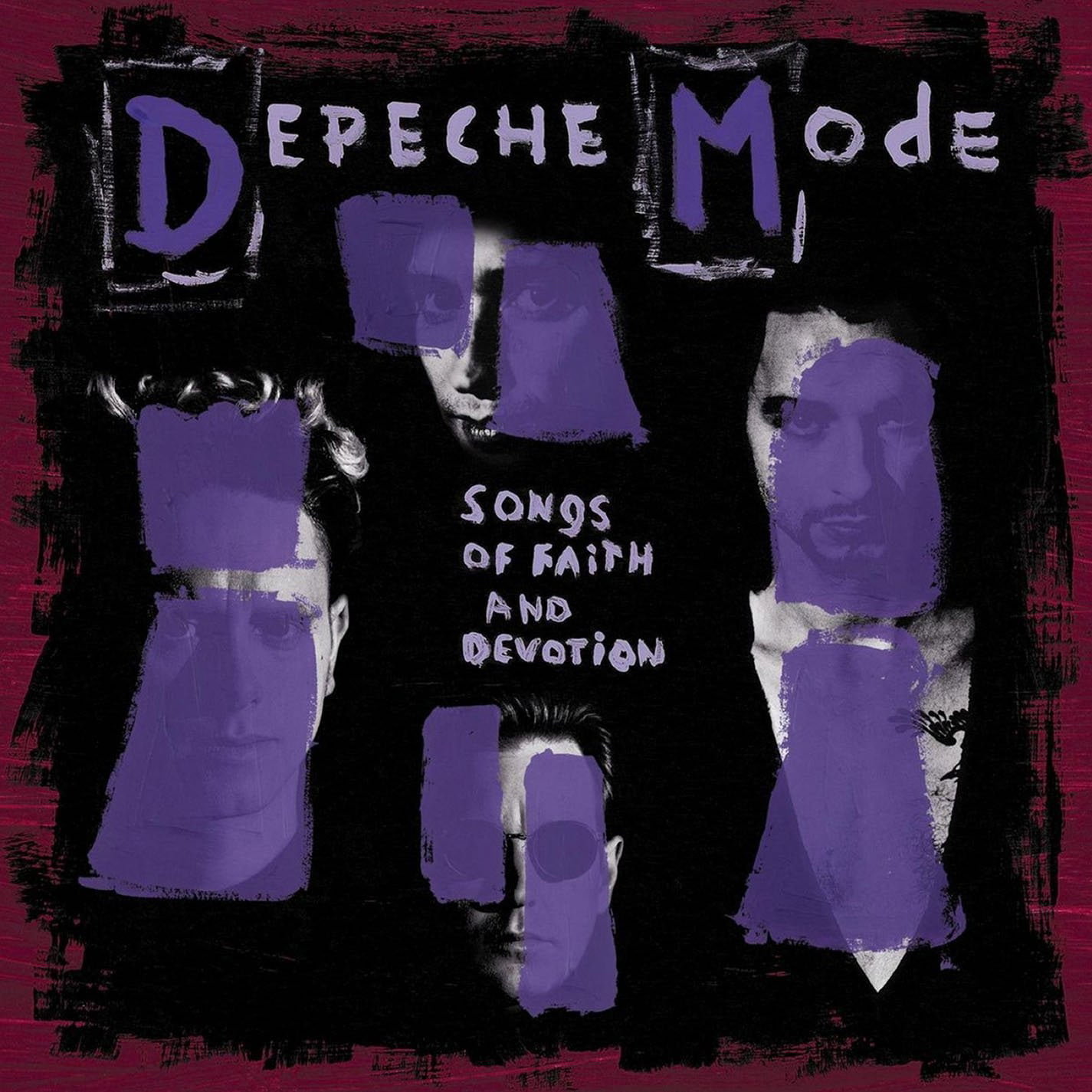
 The Songs
The Songs
